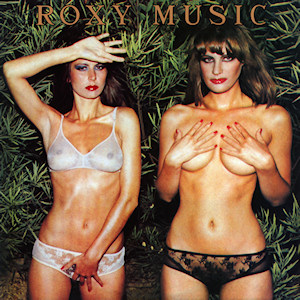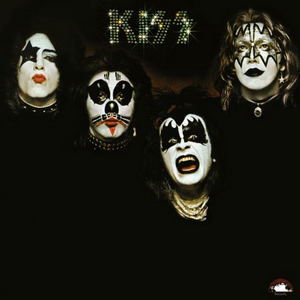Side one is easily their best, most consistent side since the debut, while not as startling. “The Thrill Of It All” is yet another classic opener, a simple piano part running through the entire track while the drums pound the pavement. “Three And Nine” brings back the camp and a nod to the ‘50s, with what sounds like French words but aren’t. Then “All I Want Is You” is an excellent wall of guitars, and a return to the sound of “Thrill” without repeating it. Similarly, “Out Of The Blue” rocks just as hard, with plenty of phasing on and off Eddie Jobson’s violin. “If It Takes All Night” sounds like one of Ferry’s perverted covers from his solo albums, though the party rhythm of the track doesn’t mesh with the arrival of “that old ennui”.
In full illustration of what the album listening experience was like back in the days when we had to manually switch between sides, the second half of the album is a different trip. “Bitter Sweet” is a dire little tune, made even more foreboding when the stormtroopers come marching through and the proceedings take a distinctly Germanic tone, even before he sings a verse in that language. A baroque harpsichord leads “Triptych”; strange even for them, the lyrics seem occupied with the Crucifixion and Resurrection. The trashy rock sound returns for “Casanova”, a putdown worthy of Dylan’s nastiness. The party seems to be winding down a la side two of the debut on “A Really Good Time”, but “Prairie Rose”, with its slide guitars and honking saxes, is one of the odder evocations of the state of Texas in the rock ‘n roll era.
We didn’t expect much from Country Life, after the so-so Stranded and Bryan’s solo experiments, so its quality certainly delivers and gives hope for the future. In fact, the album’s decent enough that they didn’t need the women in the translucent underwear to draw attention to it.
Roxy Music Country Life (1974)—3


:format(jpeg):mode_rgb():quality(90)/discogs-images/R-2757600-1530807533-3231.jpeg.jpg)

:format(jpeg):mode_rgb():quality(90)/discogs-images/R-8166335-1456391460-8919.jpeg.jpg)


:format(jpeg):mode_rgb():quality(90)/discogs-images/R-13742965-1560180987-6244.jpeg.jpg)